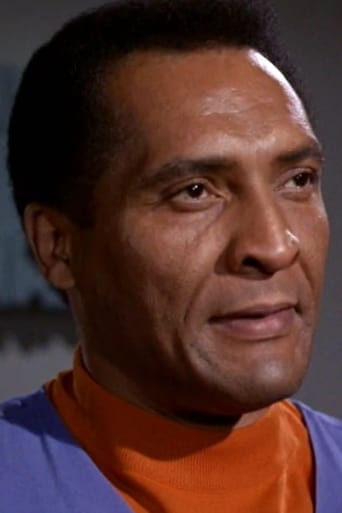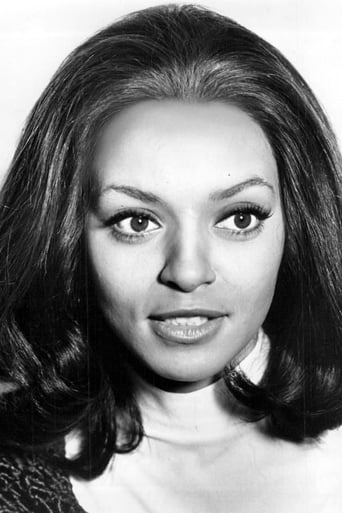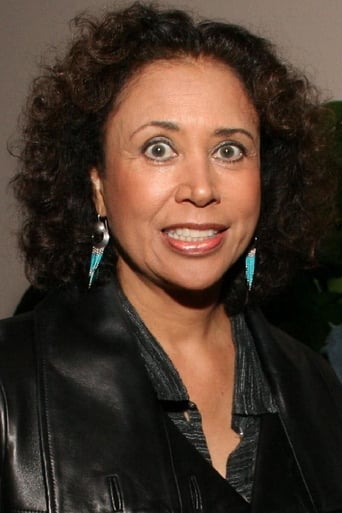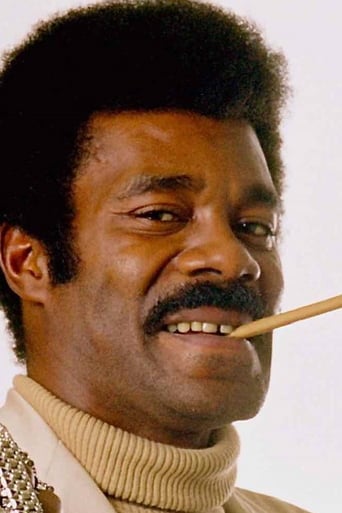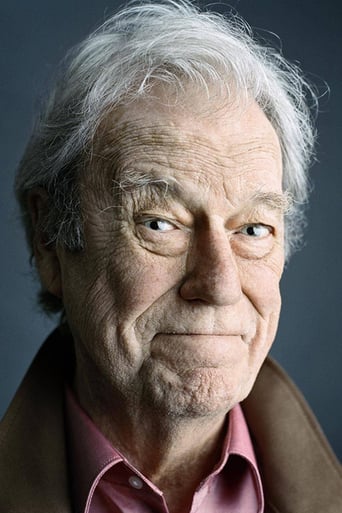Cineanalyst
Released the year following "Sweet Sweetback's Baadasssss Song" and "Shaft" (both 1971), the two films most often credited with launching the blaxploitation genre, "Blacula" started a horror cycle within blaxploitation films, which includes its sequel, "Scream, Blacula, Scream" (1973), as well as reworkings of other Gothic horror novels, with obvious renaming such as "Blackenstein" (1973) and "Dr. Black and Mr. White" (1976). "Blacula," on its own terms, is an interesting balancing act between campiness and social commentary. I've been watching a bunch of Dracula-related movies since reading Bram Stoker's novel, and most adaptations that work on even a basic level are one or the other, between allegory and camp, but not both. That's because they're seemingly contradictory approaches; one requires us to take its truth seriously, and the other asks us to laugh at its absurdity. I'm not saying both approaches can't work well together, but in "Blacula" the combination is off balance. It's humorously bad one moment; it's well-crafted and insightful the next.The interracial gay couple spells out the campiness of Dracula in the film's first present-day scene, as they explain it as their reason for buying the late Count's possessions, including Blacula locked up in his coffin. The homosexuals themselves are outlandish stereotypes of effeminate men, shrieking in terror as Blacula slaps them around, just as he does to female victims. And, Blacula amusingly grows considerably more hair on his head after being turned into a vampire, including his eyebrows now being connected to the hair on top of his head. And, of course, he must wear a cape now that he's a vamp. None of which, however, squares with William Marshall's dignified and sympathetic portrayal of the titular role. That is, when he's not growling while biting his victims or being transported by a dolly with parts visible in frame.As the film's Transylvanian prelude set in 1780 establishes, Blacula was once the African Prince Mamuwalde, who traveled to Castle Dracula to request the Count's help in suppressing the slave trade. Instead, Dracula enslaves Mamuwalde as a vampire and traps him within the coffin--separating him from his lover for nearly 200 years. "Blacula" seems to be the first Dracula-esque picture to include a reincarnation romance, as Mamuwalde's wife is reborn in a duplicate body--down to the short hair. Personally, I dislike the reincarnation romance storyline, and I think it ruined other Dracula movies, including the 1974 TV movie and the 1992 theatrically-released one, both mistitled "Bram Stoker's Dracula." The one here, however, is not as stupid, and it doesn't include the exaggerated link between Stoker's Dracula and the historical Vlad the Impaler that the later movies do.Anyways, beginning the film during the time of the American Revolution and connecting vampirism to slavery sets up the later involvement of the police in hunting Black vampires in America's urban landscapes. (After some footage of a coffin being transported, which was cannibalized from another Dracula-esque film, "Count Yorga, Vampire" (1970).) The first time an officer sees Blacula, he chases him--presumably because he finds a black man running to be suspicious. Unarmed in any non-supernatural sense, Dracula approaches him with his arms up. The cop fires his gun at him. This scene has as much resonance today, if not more, with the rise of media depictions of police killings of black men, the Black Lives Matter movement, and the protest slogan, "Hands up, don't shoot!" Of course, the audience knows that Blacula's pose is in preparation for him to suck the blood from the officer, but how would the policeman know that. "Blacula" follows the usual complex discovery plot, the common formula of horror movies as outlined by Noël Carroll, so most characters are unaware or skeptical of vampirism at this point in the film. Given that, I would think it more likely to believe Blacula was a mentally-impaired man, growling and dressed as he is, surrendering himself after realizing he was being pursued by the police rather than a physical threat, let alone a supernatural monster. But, in the moment, the cop panics and shoots.Similar scenes play out later in the movie--always involving White policemen and Black vampires. The film's two White vampires, however, are killed by the film's Black Van Helsing type. One of these is a turned policeman, whom the police chief can't bring himself to harm, although he has no trouble helping the Doctor kill the Black vampires. That the police are involved at all in a Dracula movie is unusual and obviously is because, this time, the vampire narrative is set in an urban area populated by African Americans. Recalling the 1931 "Dracula," Blacula quips that the vampire's greatest strength is peoples' disbelief in him. And, in this case, it seems the vampire's greatest weakness is peoples' racism.Perhaps, the closest "Blacula" comes to balancing its camp and social commentary is when Blacula beats the white policemen to death; it's potentially both cathartic and outrageous. The same may be said of the Doctor's killings of White vampires, although his character manages to successfully align himself with the White ruling class, as represented here by the police force, whereas Blacula, 200 years ago, was betrayed in his attempts to cooperate with the White Dracula. Perhaps, then, there's a message of hopeful progress in "Blacula," too... or not.
robertmaybeth
This movie would have been notable for its title even if the rest of it were 90 minutes of static. Coming at a time when it did, of the beginnings of so-called "Blacksploitation" movies, it still managed to set the perfect touch as one of the first movies aimed mainly at a black audience. It's impossible to take this movie seriously. The over-acting and silly violence is not really scary to an adult, and it managed to not lean too heavily on the black cast as, well, just a black cast - the movie would clearly be equally silly were all the actors white. In fact a similar "horror"-but-really-campy movie of the same era, and about the same genre is "Trog" - another ultra-low budget production of the time. And were you to put these movies side by side, "Blacula" would probably be the much more watchable of the two.Watch it if you want to see '70's unintentional camp, if you want to see a period piece of media in the relatively primitive 1970's, or if you are a fan of any of the actors for some reason (William Marshall's only other notable role seems to have been as the "king of cartoons" on "Pee-wee's playhouse" - I just KNEW I'd seen him again in something.)


